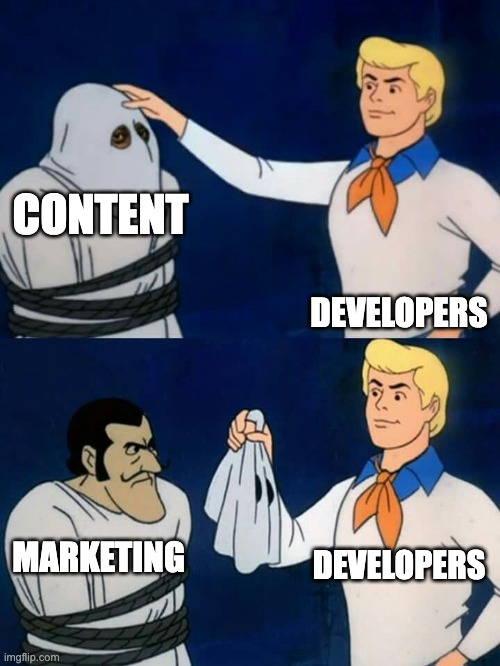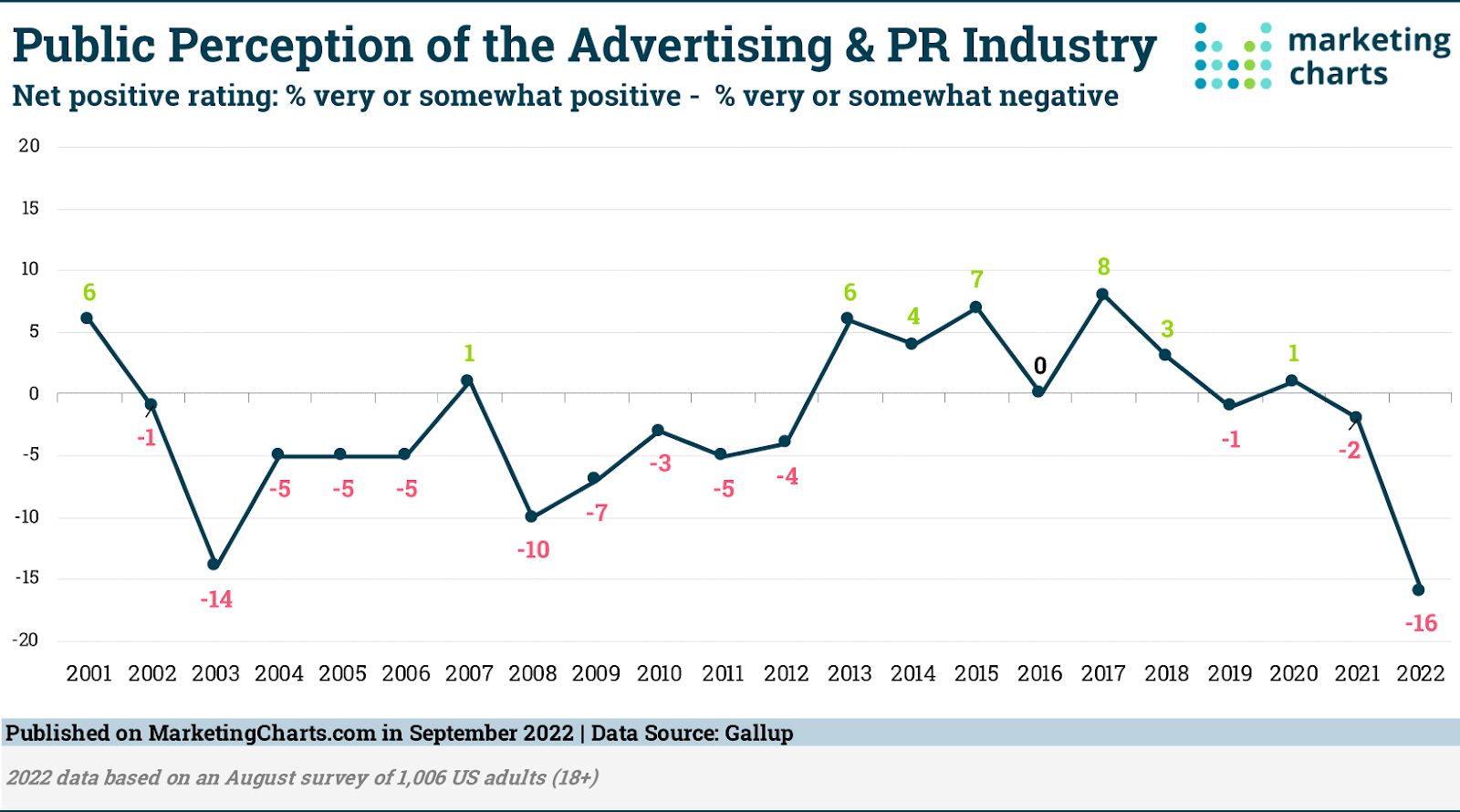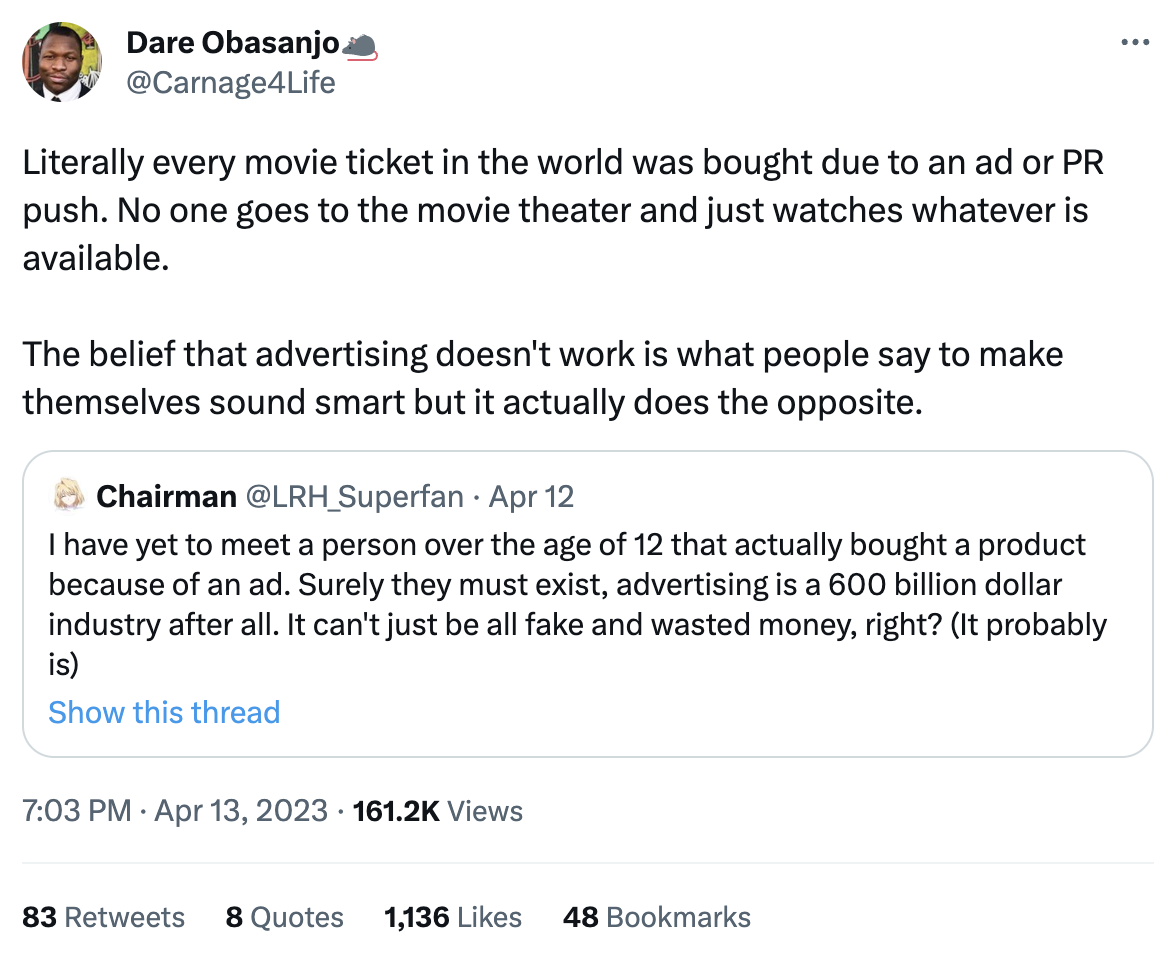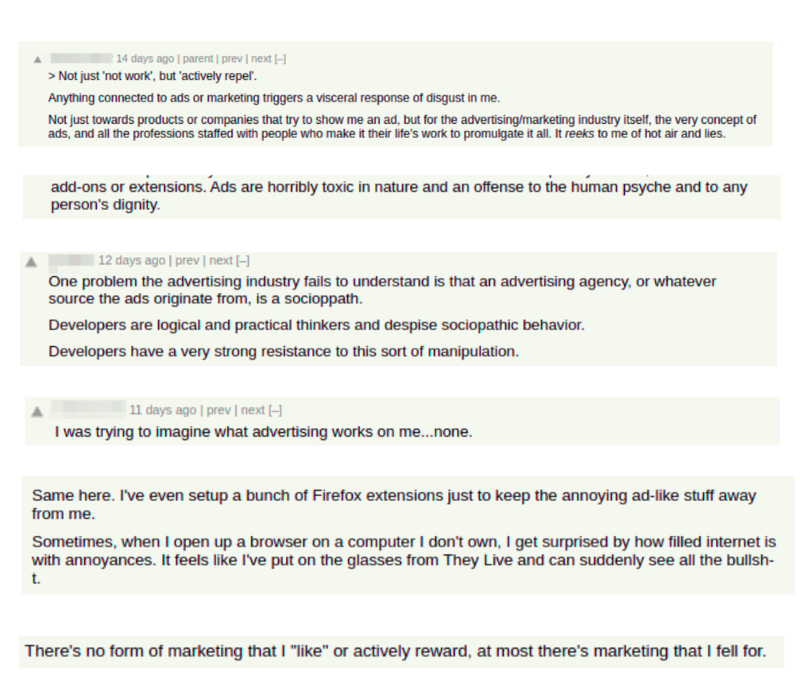Why Do Developers (Actually) Hate Marketing?
 Nick MooreFreelance Writer
Nick MooreFreelance Writer
So...How Do You Market a Product to a Developer?
“Developers hate marketing” is a statement that’s become a truism – if not a cliche – but it misleads more than it clarifies.
Rather than being a beacon that challenges developer marketers to be creative, the phrase has become a conversation-ender, an excuse–an explanation of defeat before defeat has even happened. I’ve consulted with and written for dozens of companies marketing to developers and technical executives and I’ve found that this skepticism hurts more often than it helps.
Then What Is Developer Marketing? Does It Even Work?
Developer marketing is marketing tailored specifically for a developer audience, which, in theory, takes into account their unique perspectives and priorities. Presumably, developers love the ability to code efficiently, minimize bugs, and ship on time. And presumably, they “hate marketing.” The tricky part is that the statement isn’t untrue: Many developers do hate most marketing. The idea is directionally accurate because developers do appear to be disproportionately (and loudly) skeptical of marketing in general and in many individual marketing efforts.
But if we go no further, then devtool companies and developer marketers will artificially limit themselves to “acceptable” marketing or avoid marketing altogether.
Some of the likely results are obvious, such as losing the ability to efficiently scale, but there are ripple effects. Startups will struggle to validate their early products; challengers won’t grow fast enough to unseat incumbents; and companies will pivot from one idea to the next, assuming that the problem lies in the idea and not in the communication of the idea.
What Is a Developer Audience? (And How Not To Alienate Them)
A developer audience consists of busy technical professionals occupied with writing, testing, and debugging code for important projects on their various product roadmaps. Their top priority is shipping performant, bug-free software as quickly as possible.
...Not participating in some vendor’s marketing campaign. Right?
Here’s where it makes sense to re-frame the situation: Developers may profess a sincere hatred of marketing, but what they really hate is spam. With that understanding in mind, devtool companies don’t have to avoid marketing; they have to avoid creating spam. They need to figure out how to create content that is so valuable that it doesn’t even appear to be spam.
There are many ways to create valuable content that developers actually want to see, but we get there by going beyond the idea that developers hate marketing.
Two Myths About Developers That Marketers Don’t Question
Many companies–even if they do deep research for product development–rely on intuition for content development. Their intuition tends to rely on two primary myths: One, that developers are significantly more “logical” than other types of customers, and two, that developers understand marketing well enough to wholly reject it.
Myth One: “Developers Are Too Logical to Fall for Marketing”
This is an assumption that some people feel to be true only because it plays to a stereotype–one that has always been inaccurate and is now severely outdated.
And yet, I see forms of this assumption play out all the time, which is especially risky because there are numerous other assumptions baked in.
- Are developers actually especially logical? Are other customers somehow not logical?
- If developers really are logical, then why can’t marketing be logical enough to appeal to them?
- How do you square developers being too logical for marketing against developers getting Red Hat tattoos?
The worst assumption is more latent: If logic can “defeat” marketing, that necessarily means marketing involves some level of trickery. But marketing doesn’t have to be an episode of Scooby Doo and we don’t have to view our work as manipulative and our audience as adversaries.

Developers say they “don’t fall for” marketing. But we shouldn’t be trying to make them fall for anything at all.
Myth Two: “Developers Reject Marketing, Anyway”
Developers are notorious for hating marketing, but the only notable thing here is how loudly they make this complaint. The truth is: Everyone hates marketing.
According to 2022 MarketingCharts research, which stretches back to 2001, public perception of the advertising and PR industry has never been high but plummeted to a new low in 2022.

Only 5% of people have a “very positive” perception of the industry and only 21% have a “somewhat positive” perception.
And it’s not just a branding problem.
According to 4A research, only 4% of people think advertising and marketing professionals “practice integrity” and only 4% consider editorial content written by a company to be trustworthy.
But if you talk to marketing, advertising, and business professionals, you’ll see a worthy (and sometimes snarky) focus on revealed preference–what we assume our audiences want.

Everyone is sincere but no one is (quite) right. Marketing skeptics are being sincere when they say they can’t stand marketing, but this sincerity is based on a limited understanding of what marketing can be. I’m not saying we stop listening to developers, but I am saying we should listen not just to what they’re saying, but why they’re saying it.
To clarify, when we have products and services to offer developers, it doesn’t make sense to immediately assume that any and all marketing efforts will automatically fail. Developers hate marketing, they say, but they love tutorials, events, swag, self-serve tools, community projects, podcasts, essays...the list goes on.
The list goes on even further if you differentiate between marketing that’s good and bad, and acknowledge that quality doesn’t always map to format. Replit, for example, can get 300+ upvotes on HackerNews with a blog post announcing a mobile app, while a no-name brand can write an in-depth tutorial on a language few are interested in and get no responses.
Marketing to developers can work but there’s no single, clear, dependable way to do so because we’ve misidentified the challenge. Developers say they hate marketing but what they really hate is spam. That reframing opens a lot of possibilities.
Developers Can Love Marketing But Will Always Hate Spam
Realistically, what developers really hate are advertising and spam.

An actual conversation about developer marketing. Source: DeveloperMarkePear
As Jakub Czakon writes, “People just don’t get what marketing is. People think it is just pushy pop-ups, fluffy copy, and irrelevant ads. I think this is our fault, marketers. We did this to ourselves.”
My only contention with what Czakon writes is that “we” doesn’t just include marketers. If we focus on what developers actually hate – the pushiness, the fluffiness, the irrelevance – then we can see that developers hate all spam and only some marketing.
But doesn’t everyone hate spam? Yes, but the difference is that developers might be the most spammed audience.
Consider two sources: Sales calls and recruiter messages.
I’ve been marketing and writing for over five years and I’ve gotten a sales call precisely once. Developers, however, are much more likely to receive sales calls and emails because almost 24% of developers have a “great deal of influence” on technology purchases.
I didn’t receive inbound recruiter contact until I was well into my marketing career whereas developer friends I graduated college with started receiving them before they even graduated. And despite years of effort, the developer shortage is ongoing.
Salespeople and recruiters object in the same way marketers do: “No, that’s the bad kind of cold call/recruiter message/blog post!” But a sinking tide lowers all boats. The worst among us are also the most voluminous and the volume of spam clogs up channels already stuffed with scam texts, telemarketing calls, spam emails, and ads across search tools and social networks.
In the end, it’s all spam, and anyone spam-adjacent ends up looking bad too. This is why developer marketers can’t merely be good. We have to prove with every claim, post, and asset that this isn’t spam and we aren’t spammers.
Developer Marketers Have to Create a Counterweight to Skepticism
Developer marketers often retreat from developer complaints without advancing a new strategy. There’s a temptation to start from scratch and skip entire categories and techniques – only to create marketing that still doesn’t work because it doesn’t speak to what developers actually want.
I’ll focus on content here because that’s my specialty, but the principle applies to other marketing techniques too: If developers reject the typical approach, reject the “typical” and not the “approach.”
The trick is that merely producing “good” content isn’t enough. We can’t do anything to reduce overall spam, so if we want to be appealing, we have to provide a counterweight to existing skepticism.
Doing so involves equal parts value and signaling.
Any given post, of course, has to be valuable, useful, and interesting, but because developers arrive at every post with hair-trigger skepticism, we have to avoid even the hint of a red flag. That means a few things you’re probably already familiar with, such as pushing CTAs down the page, but it might also require rethinking formats and practices that are otherwise normal.
- Don’t: Create product-led content that shoves the product into your reader’s face.
- Do: create a transparent guide to what your product can and can’t do. But make sure you don’t over-promise (or even sound like you’re overpromising).
- Don’t: Write thought leadership content that relies on cheesy trend predictions.
- Do: Create thoughtful, technical essays based on experiences from engineers and founders. But make sure your claims are authentic as well as relevant and well-supported as well as novel.
- Don’t: Produce hollow, manicured case studies.
- Do: Create technical case studies that describe, in detail, what a customer’s experience was really like – including the gains, the stresses, and the adoption and integration processes. But make sure the focus remains on the customer's problem and not on your solution.
Developers say they hate marketing and they’re not lying. So our reaction has to be learning how to market to them in better ways.
More Resources:
Content from the Library
Generationship Ep. #25, Replacing Yourself featuring Melinda Byerley
In episode 25 of Generationship, Rachel Chalmers speaks with Melinda Byerley, founder and CEO of Fiddlehead, about the...
Open Source Ready Ep. #2, Defining Open Source with Avi Press of Scarf
In episode 2 of Open Source Ready, Brian Douglas and John McBride speak with Avi Press, Founder & CEO of Scarf. Together they...
How It's Tested Ep. #12, Mobile Deep Linking with Daniel Johnson of Branch
In episode 12 of How It’s Tested, Eden Full Goh is joined by Daniel Johnson of Branch to explore the complexities of mobile deep...